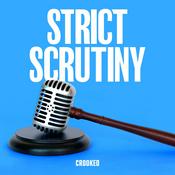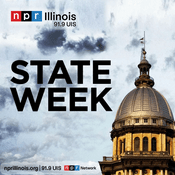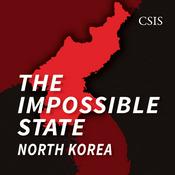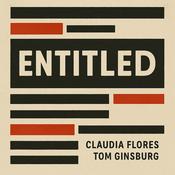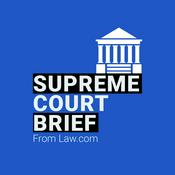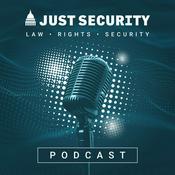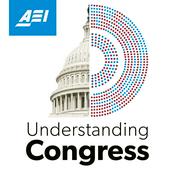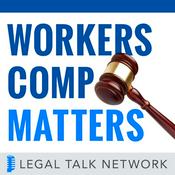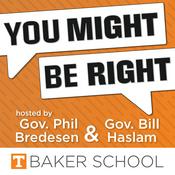41 episodes

Lady Justice Isn’t Blind
7/19/2023 | 46 mins.
Lady Justice is often depicted wearing a blindfold, signifying that judges are neutral arbiters of the law. Unfortunately, thanks for a judicial doctrine known as Chevron deference, the Supreme Court has required judges to peek from behind that metaphorical blindfold and put a thumb on the scale for the most powerful litigant in our nation: the federal government. In a case called Brand X, the Court took Chevron deference to its logical conclusion, allowing agencies to overrule judicial decisions. One dissenter wrote that this was not only bizarre, but it was probably unconstitutional. That view has been picking up steam in the past decade. Next term, the Court will hear a case asking it to overturn Chevron deference.Thanks for our guests Aditya Bamzai and Jeff Wall.Follow us on Twitter @ehslattery @anastasia_esq @pacificlegal #DissedPod Hosted on Acast. See acast.com/privacy for more information.

A Ripsnorting Dissent
4/05/2023 | 40 mins.
The government’s deprivation of life, liberty, or property is legitimate only if preceded by certain procedural protections—better known as due process of law. This includes reasonable notice of the rules so citizens can know and follow them. But a 1947 Supreme Court decision gave the burgeoning administrative state the ability to create new rules with retroactive application, through a process known as adjudication. A dissent by Justice Robert Jackson—who was no enemy of the administrative state—lambasted the Court for failing to scrutinize this action. Thanks to our guests John Barrett and Joe Postell. Follow us on Twitter @ehslattery @anastasia_esq @pacificlegal #DissedPod Hosted on Acast. See acast.com/privacy for more information.

The Buck Stops with the President
3/08/2023 | 38 mins.
The federal government is brimming with hundreds of agencies and millions of employees, many of whom enjoy some independence from political accountability. But the President is supposed to be responsible for everything that happens in his branch of the government. With the creation of more and more “independent” agencies, the lines of accountability have become blurred. In a series of cases, however, the Supreme Court has required clear lines of accountability so that the buck stops with the President. Thanks to our guests Tommy Berry and Chris Walker. Follow us on Twitter @ehslattery @anastasia_esq @pacificlegal #DissedPod Hosted on Acast. See acast.com/privacy for more information.

Delegation Running Riot at SCOTUS
2/08/2023 | 38 mins.
A central feature of our Constitution’s separation of powers is that Congress is charged with making the law, and it can’t give away this power to the other branches of government. Known as the nondelegation doctrine, this core protection of our liberty has only been halfheartedly enforced by the courts for much of the past century. In 1935, however, nondelegation enjoyed “one good year” when the Supreme Court held that Congress unconstitutionally gave away its lawmaking power. But a dissent quickly became the new majority and the nondelegation doctrine mostly vanished. In recent years, several justices have expressed an interest in reviving that old doctrine. Will the nondelegation doctrine enjoy another good year?Follow us on Twitter @ehslattery @anastasia_esq @pacificlegal #DissedPod Hosted on Acast. See acast.com/privacy for more information.

The Supreme Court and Indian Children
1/04/2023 | 40 mins.
In 1978, amid a sordid history of Native American children being taken from their families and placed in custody of non-Indians, Congress passed the Indian Child Welfare Act, or ICWA. Though passed with good intentions, critics say ICWA actually offers Indian children less protection than non-Indian children solely because of their ancestry. This term, the Supreme Court will decide Brackeen v. Haaland, which challenges the constitutionality of ICWA. But a case nearly a decade ago foreshadowed the constitutional arguments that are now before the court. Thanks to our guests Timothy Sandefur and Oliver Dunford. Follow us on Twitter @anastasia_esq @ehslattery @pacificlegal #DissedPod Hosted on Acast. See acast.com/privacy for more information.
More Government podcasts
Trending Government podcasts
About Dissed
Listen to Dissed, 5-4 and many other podcasts from around the world with the radio.net app

Get the free radio.net app
- Stations and podcasts to bookmark
- Stream via Wi-Fi or Bluetooth
- Supports Carplay & Android Auto
- Many other app features
Get the free radio.net app
- Stations and podcasts to bookmark
- Stream via Wi-Fi or Bluetooth
- Supports Carplay & Android Auto
- Many other app features


Dissed
download the app,
start listening.

